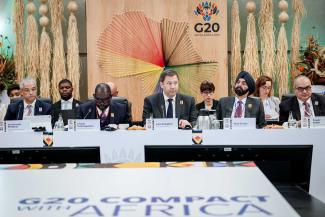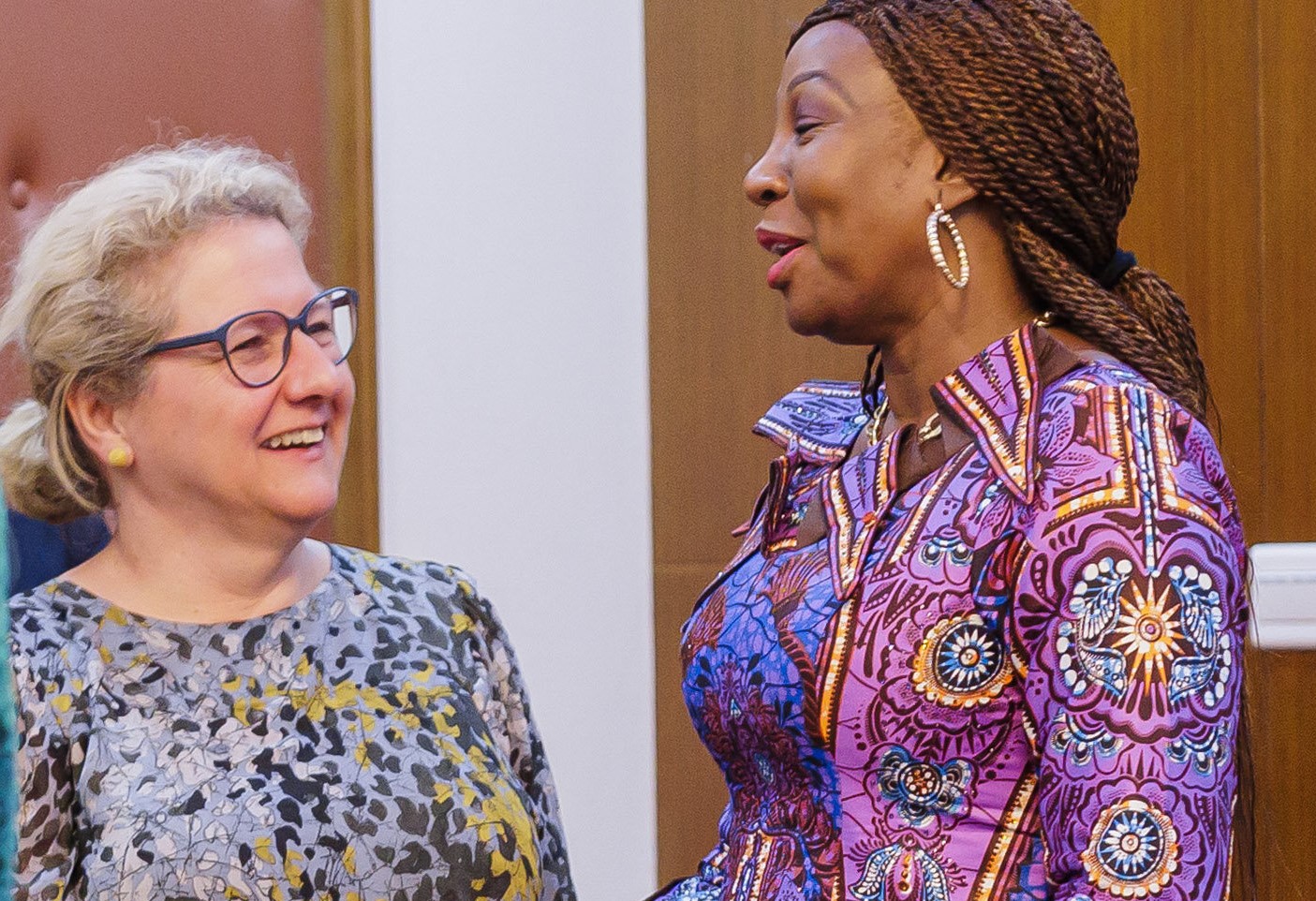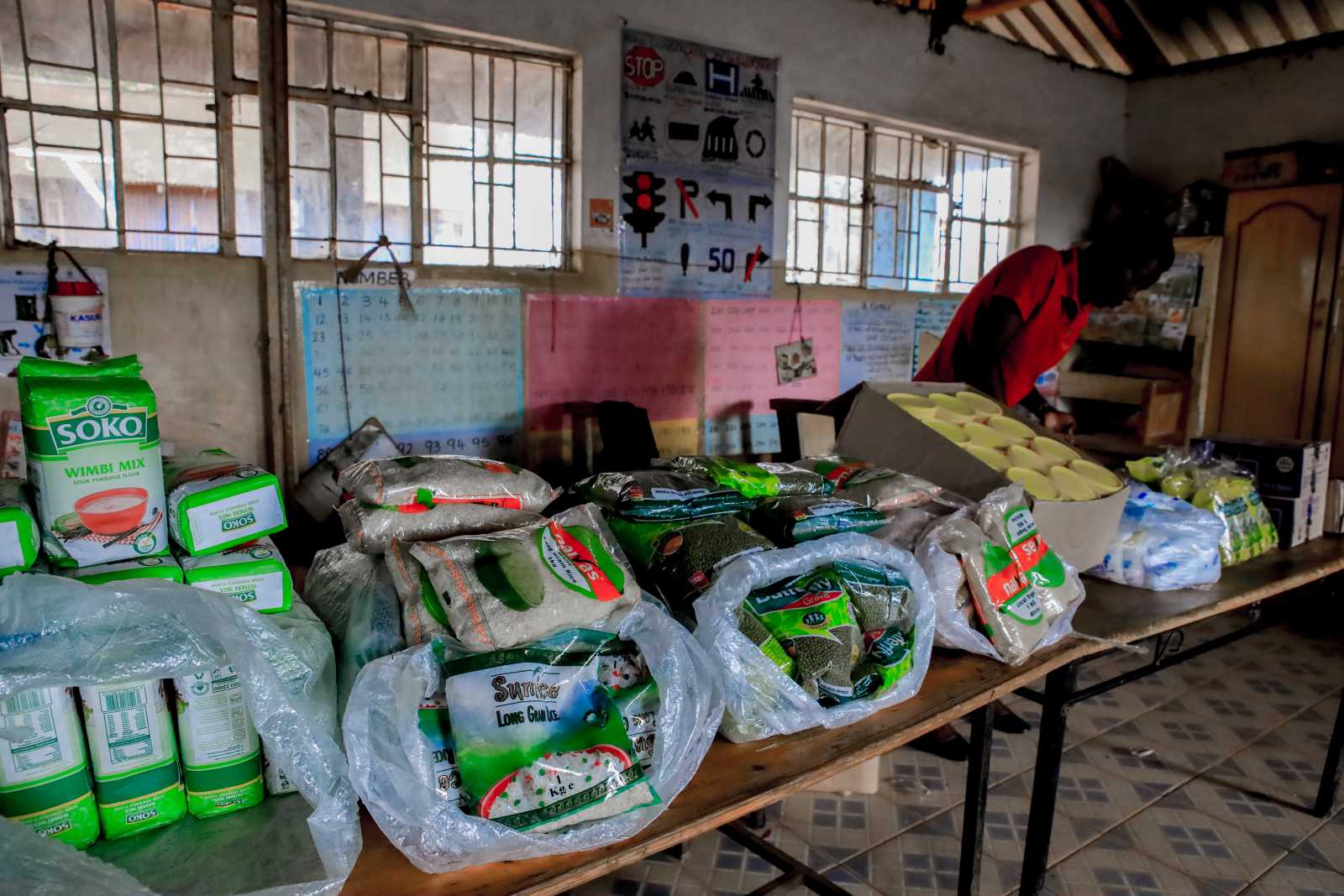Africa strategies
Taking a chance on the private sector

Over the past 20 years, numerous countries – including China, the USA and Russia – as well as the EU, have repeatedly held summits with African countries and the African Union (AU), which illustrates the growing geostrategic competition for influence in Africa. Relations with all African countries are becoming increasingly important in many countries’ foreign trade policies.
In addition to strengthening their political influence in Africa, many countries are interested in deepening their economic relationships with African countries and creating a favourable business environment. For example, the EU Commission announced in February 2022 that it would invest up to € 150 billion in African countries as part of the Global Gateway Initiative. The initiative aims to promote ecological and digital transformation as well as sustainable economic growth and expand healthcare systems.
At the same time, some EU member states are positioning their private sectors as actors that can help achieve economic and political development goals. The following comparison of the Africa strategies of Germany, France, Italy and the Netherlands highlights different approaches as well as the different importance that these countries attach to the private sector.
All four countries have become more diplomatically active in the recent past. Germany, for example, is a driving force behind the G20 initiative “Compact with Africa”, which came into being in 2017 under Germany’s G20 presidency. Its goal is to improve the business environment in African partner countries in order to promote private sector investment. The French government has held 28 Africa-France Summits starting in the 1970s. At the most recent, in 2021, the French government took a new approach: instead of representatives of African governments, it invited civil-society actors, companies, intellectuals and representatives of the diaspora to discuss cultural topics as well as entrepreneurship and innovation by African and French start-ups. The Italian government organised an Africa Summit in January 2024, which 21 African heads of state attended. It was the highest-level summit that Italy has held in recent years – and a sign of its increased focus on the continent. So far, the Netherlands has not held an Africa summit.
France
In 2023, President Emmanuel Macron introduced a new Africa strategy. In addition to realigning its security policy, the government also wants to take a new approach to economic cooperation by moving away from classic development cooperation towards a stronger role for the private sector. Economic cooperation is to be intensified particularly in the areas of agriculture, digital technologies and the cultural and creative industries.
French companies’ investments in Africa would also receive better protection against risks. Companies that expand internationally are ultimately supported by Team France Export actors. This initiative brings together the market entry offerings of the export credit and foreign trade agency, national and foreign chambers of commerce and individual French regions to provide companies with a quick overview of all the available funding opportunities for activities in Africa.
Italy
In 2024, the Italian government introduced the Mattei Plan, which has six pillars: education, agriculture, health, energy, water and infrastructure. The goal is to promote Africa’s sustainable socio-economic development and fight the causes of irregular migration. Italian companies are involved above all in the implementation of this plan, especially with regard to energy projects and supporting African start-ups. The Mattei Plan builds on the Africa strategy that was adopted in 2020, which placed particular emphasis on Italian private-sector investment in the agriculture and food industry, renewable energies and infrastructure. The plan should help Italian companies expand in Africa and engage in successful partnerships.
The Netherlands
In 2023, the Dutch government announced its first continent-wide Africa strategy, which is designed to last 10 years. It focuses on four areas: mutual economic development, security, migration, poverty reduction and climate protection. The private sector is pivotal to achieving success in all of these areas.
Promoting Africa’s private sector is central. The goal is to make value chains more sustainable and strengthen local production in order to ease African companies’ access to European markets. Private sector involvement is most relevant in the agriculture, health and infrastructure sectors. Eight African priority countries (Egypt, Côte d’Ivoire, Ghana, Kenya, Morocco, Nigeria, Senegal and South Africa) are defined for projects relating to sustainable and digital transformation, which aim to create local jobs.
Additionally, innovative financing models should also facilitate Dutch private sector investment in Africa. The strategy particularly emphasises the role played by the African diaspora in the Netherlands as a bridge between the two regions.
Germany
In Germany, individual federal ministries and the federal government have adopted various Africa strategies in the past. These include the Ministry of Defence (2015), the Ministry of Education (2018), the Ministry of Economic Cooperation and Development (2023) and the Ministry of Food and Agriculture (2025). The Africa policy guidelines of Germany’s federal government, which are coordinated by the Foreign Office, were last updated at the beginning of 2025.
The guidelines are divided into four pillars:
- Joining forces to overcome global challenges,
- Security, peace and lasting stability,
- Strengthening democratic resilience, as well as education, science and innovation and
- Sustainable growth, greater economic exchange and cooperation between companies, local added value and diversification of supply chains.
The fourth pillar is concerned with strengthening private sector actors, such as firms in African countries, whose cooperation with German companies should increase. The private sector, however, is not seen as a core component of the guidelines; it is only considered a priority in this last pillar.
Recommendations for Germany’s Africa policy
This comparison of Africa strategies shows that all four countries would like to enhance their economic cooperation with African countries and especially their private sector investment. There are differences, however, when it comes to the private sector’s role in steering African development. Whereas in France, Italy and the Netherlands, the private sector is seen as making an essential contribution to reaching development and economic goals, in Germany, it is addressed as a separate topic in just one of the pillars of the government’s Africa policy guidelines.
Germany needs a comprehensive, inter-ministerial Africa strategy that goes beyond topic-specific Africa papers by individual ministries. An integrated approach is urgently needed. Such an approach should set clear goals, bring together the most important actors concerned with Africa policy issues and establish a central role for the private sector.
The private sector should move to the centre of Germany’s Africa policy because German and African companies play a pivotal, enabling role in achieving development and economic goals. Private sector engagement has many positive effects on African countries: by investing in Africa, they contribute to job creation, technology transfer and economic growth, which leads to political and social stability and lower levels of migration.
A stronger focus on the private sector in Africa policy would include greater support for companies when entering the market or continuing to do business in African countries. That would be beneficial for all: African companies and the German private sector would both profit without creating new dependencies.
Literature
Von Carlowitz, P. and Züfle, S., 2024: Herausforderungen und Strategien für das bayerische Afrikageschäft. Eine vbw Studie. (“Challenges and strategies for Bavaria’s business with Africa.” Only available in German.)
Simon Züfle is a postdoctoral researcher in the think tank Doing Business in Africa at the ESB Business School at Reutlingen University.
simon.zuefle@reutlingen-university.de
Philipp von Carlowitz is a professor of international and strategic management and the head of the think tank Doing Business in Africa at the ESB Business School at Reutlingen University.
philipp.von-carlowitz@reutlingen-university.de



















